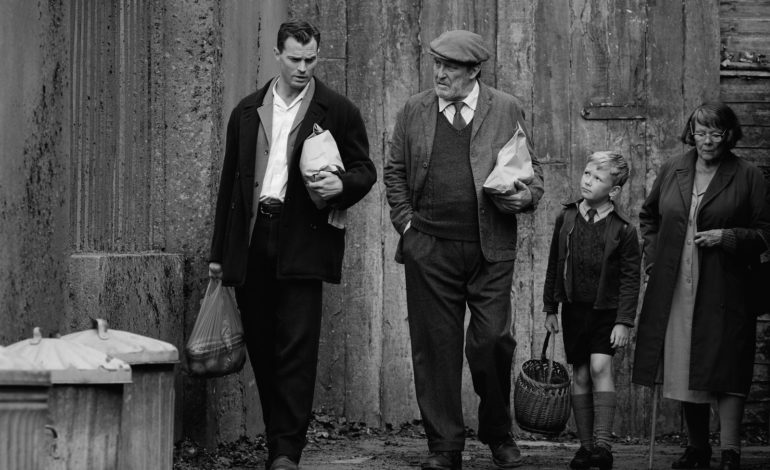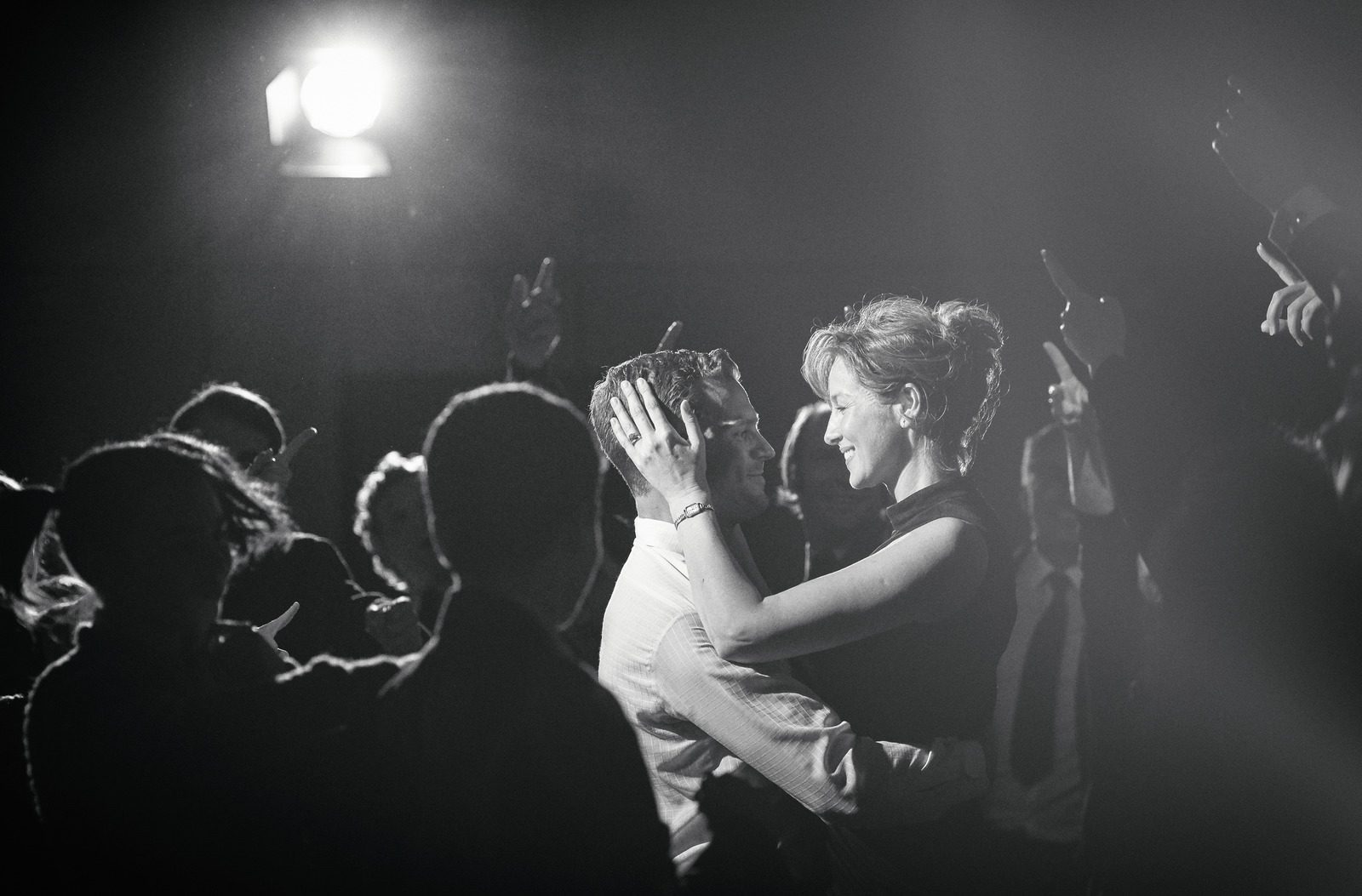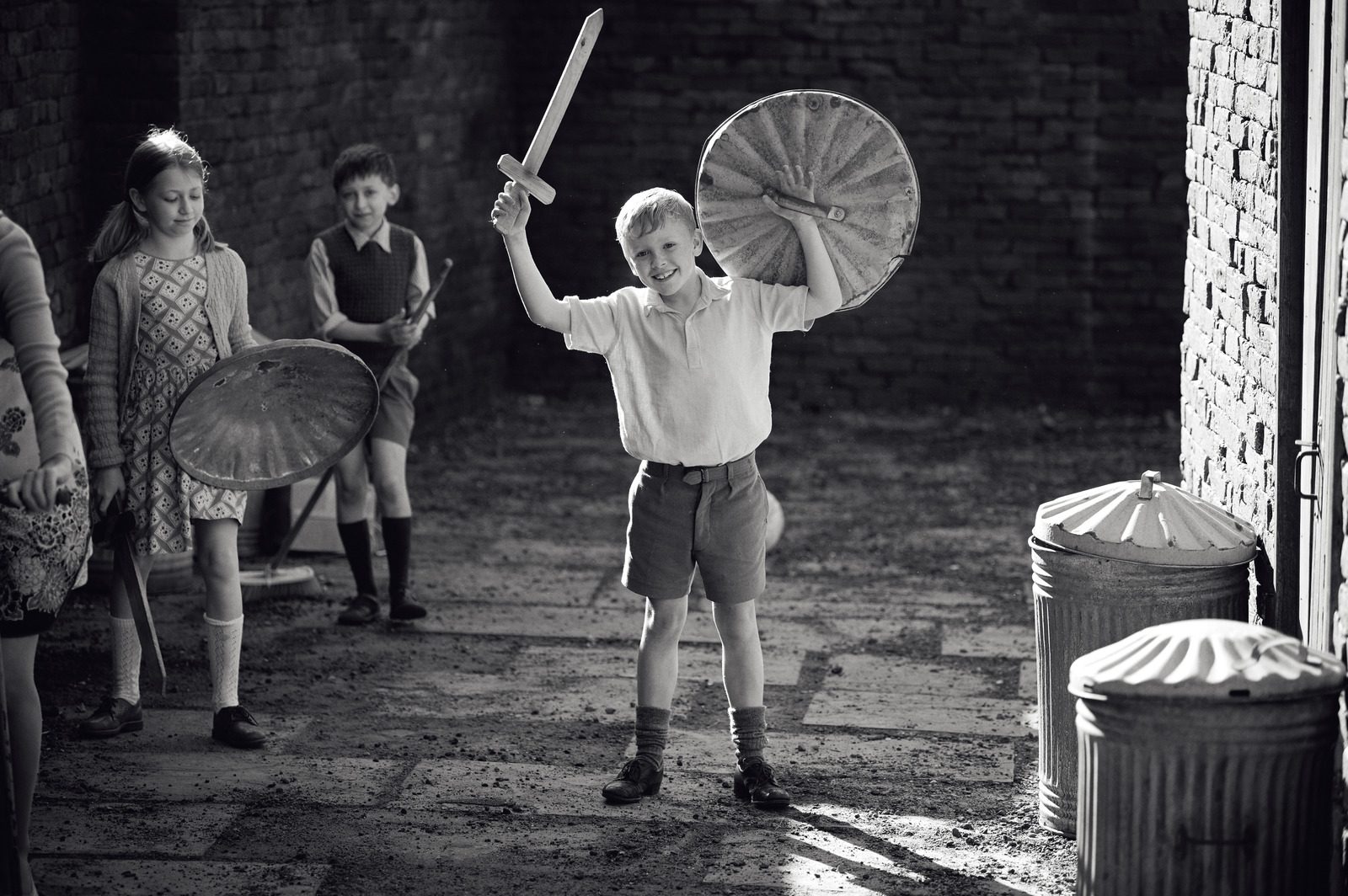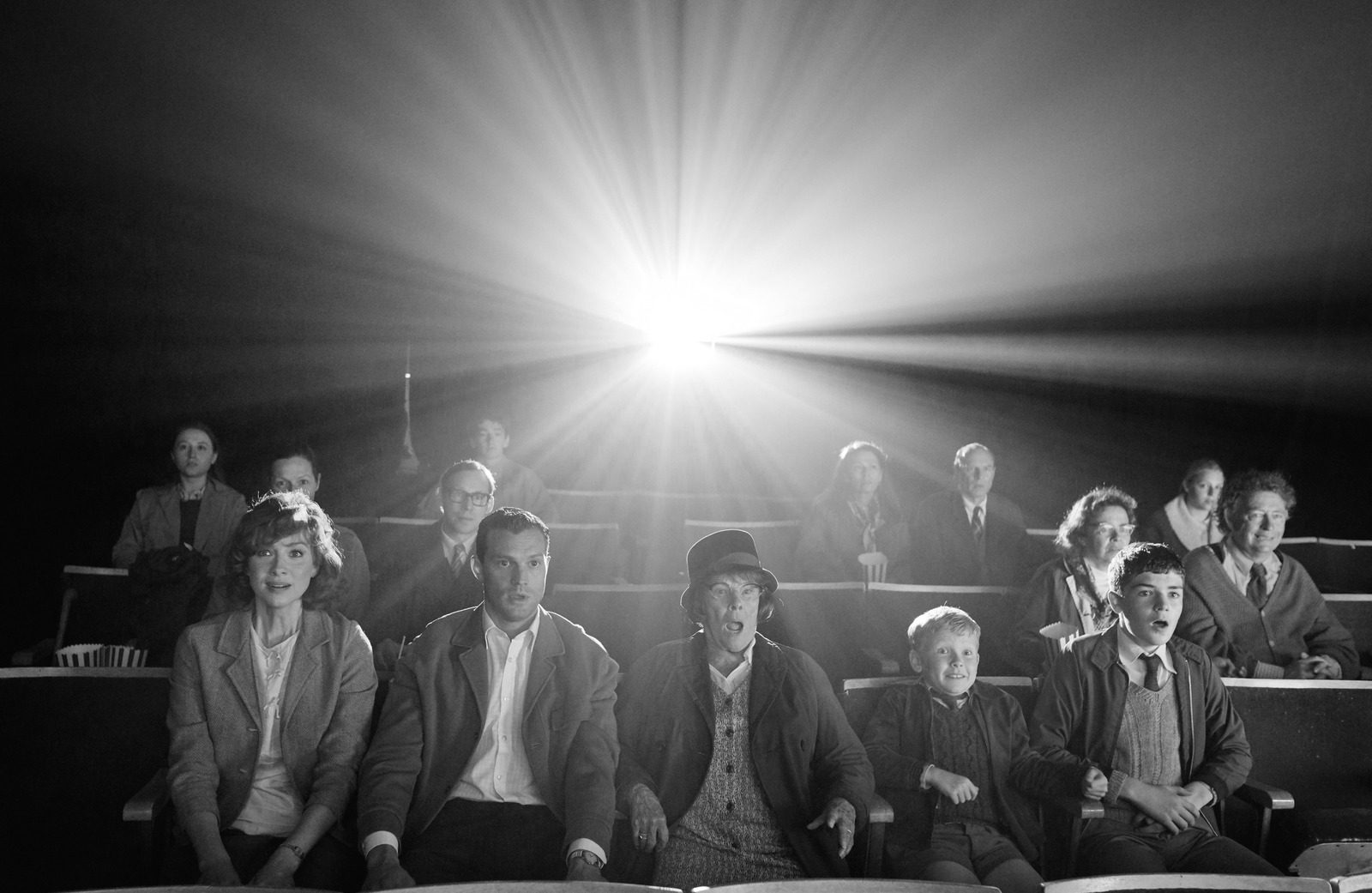

Kenneth Branagh’s Belfast is a touching coming-of-age drama set in the late-1960s Northern Ireland riots. The film follows nine-year-old Buddy (Jude Hill in his first feature role) as he faces numerous changes in all aspects of his life, such as love and friendship. Until the summer of 1969, he lives quietly in Belfast, where it seems that nothing bad could happen. In August that year, a series of attacks and riots take over the city as result of a confrontation between Catholics and Protestants, who had coexisted in apparent harmony until that moment. His mother will be in charge of protecting him and dealing with the situation at home, since his father is working in England to earn money to support them. However, in the midst of all that chaos and search for answers, they will find moments of joy, music, dance and laughter.
Much like Alfonso Cuarón did with Roma in 2018, Belfast marks the return of writer and director Kenneth Branagh to a more intimate and personal cinema, which he developed early in his career behind the camera with titles like A Midwinter’s Tale (1995). In recent years, Branagh had traded his brilliant shakespearean adaptations like Henry V (1989) or Hamlet (1996) for Hollywood blockbusters like Thor (2011), Cinderella (2015), Murder on the Orient Express (2017) and the upcoming Death on the Nile (2022). It is refreshing to see the Irish filmmaker back with an original story … and not just any original story, but one based upon his own childhood memories in the city where he was born and raised before escaping the Troubles with his family. Branagh wrote the script in the early days of COVID-19, and shot it on location in Belfast and London, as the pandemic was still raging. Interestingly enough, the street where the protagonist lives, and most of the film takes place, looks like a movie set at times, which contributes to the fantasy world that Branagh has created around his memories.
This is a historical drama seen through the eyes of a child, and therefore, those not very familiar with the real-life Troubles of Northern Ireland can learn about them as the story progresses. At some point, Buddy realizes that the conflict isn’t so much about religion differences, but rather that the Protestants want to remain part of the United Kingdom, while the Catholics are for joining Ireland. Buddy, whose family is Protestant, also finds out that the Catholics get the privilege of confessing their sins to be automatically forgiven.


But apart from the external sociopolitical tension, Buddy’s family has to deal with issues of its own. His charismatic father divides his time between Ireland and England, away from his family for work, sometimes involving suspicious business. In the meantime, his mother stays at home, taking care of their two sons. However, when her husband is around, the two often argue about whether it would be a good idea to move to Sydney or Vancouver, something he supports but she fiercely opposes to.
The film also mirrors the director’s early love for movies, as Buddy forgets all the turmoil of the outside world by watching Chitty Chitty Bang Bang on the big screen. Plenty of other movie and TV references are present in the film. Buddy loves classic westerns such as High Noon or The Man Who Shot Liberty Valance. In addition, One Million Years B.C. and Star Trek are on TV at the family home. In another scene, they all go to see a stage production of A Christmas Carol.
Branagh even has time to develop a romantic subplot. Buddy falls in love with Catherine, a girl from his school, and tries to improve his test scores in order to sit next to her in class, since seating arrangements are based on academic performance. Also the relationship between his grandparents, always making fun of one another but deeply in love, provides a sweet romantic element to an otherwise violent film. One of its main achievements, is its ability to balance opposites almost seamlessly. There are perfect amounts of drama, comedy, romance and action. The film feels epic when it needs to, without compromising the intimate and personal.


Sure, this time Branagh isn’t working with the grandiosity of a Shakespeare libretto but instead, he relies on the film’s outstanding emotional power and visual elements, achieved through detailed production design, highly atmospheric music, and several great performances from its leading cast.
Jamie Dornan (star of 50 Shades of Grey) and Caitriona Balfe (from the Outlander series) play the marriage inspired by Kenneth Branagh’s parents. As the protagonist’s grandmother, they are accompanied by veteran Oscar-winner Judi Dench (Shakespeare in Love and M in a handful of Bond films such as Casino Royale or Skyfall). The film features the participation of an illustrious citizen of Belfast, singer Van Morrison, who provides up to eight classic songs and one especially written for the movie. There is also a brief but memorable dance scene that uses the Love Affair version of «Everlasting Love».
Newcomer Jude Hill carries the weight of the film on his tiny shoulders. Despite his young age and lack of professional experience, he delivers an impressive performance as Buddy, and along with Dench, the two form a delightful on-screen duo full of charm, chemistry and authentic grandmother-grandchild complicity.


The cinematography by Haris Zambarloukos is superb, with its elegant composition (often framing scenes through open windows), swift camera movements, deep focus, and a clever use of black and white versus color, to differentiate the past from the present (the opening and closing shots of the city), but also the grey and troubled reality versus the magical world of film and theater. Some of the images remind of Paweł Pawlikowski’s beautiful historical drama Cold War (2018).
Belfast had its world premiere last September at the Telluride Film Festival, and won the Audience Award at this year’s Toronto International Film Festival. With this in mind, and given its universal themes, believable acting and technical achievements, everybody agrees that it is certainly Academy Award material.
Verdict: 4 out of 5
Shot in beautiful black and white (with a few nice touches of color), Belfast bears undeniable parallels to Kenneth Branagh’s life and traces a moving, luminous and heartbreaking journey through the riots and violence of the city, but also through movie theater dreams, family relationships or first love.
Despite its simple premise, the nostalgic charm, flawless visual style and brilliant performances of Belfast will guarantee its presence during awards season.
Belfast opens in the US on November 12, 2021.
